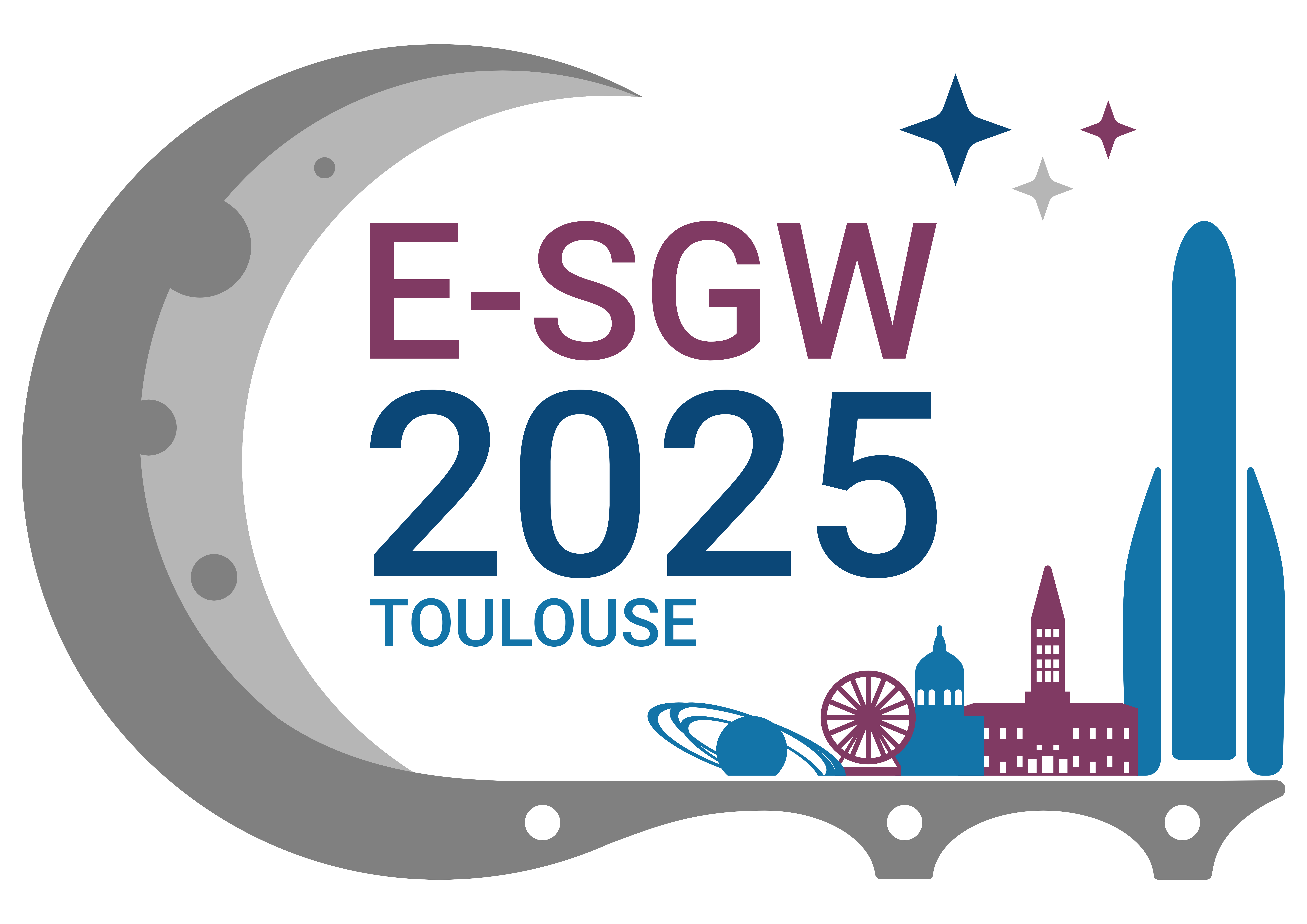Exciting opportunity to lead SGAC as Executive Director
Join the SGAC Leadership as our next Executive Director! This full-time, high-level, in-person role provides a unique opportunity to work closely with the Acting Executive Director and gain invaluable experience as you transition into a potential future role as the Executive Director.
About SGAC
SGAC is an international non-governmental, non-profit (US 501(c)3) organisation with more than 25,000 members worldwide, which represents university students and young space professionals to the United Nations, space agencies, industry, and academia. The organisation was born out of the UNISPACE III recommendations in 1999 and has strong relationships with the United Nations Office of Outer Space Affairs and the Committee on the Peaceful Uses of Outer Space.
Summary
The SGAC Executive Director is a full-time, time-intensive and highly-rewarding role. The Executive Director leads the planning and execution of the strategy behind SGAC, driving workforce development by inspiring students and young professionals, and offering them a platform to discuss key issues of the space industry, interact with space leaders, and share their views about the future of the space sector.
The role of the SGAC Executive Director is to support building and managing all of SGAC’s global partnerships with entities in fields including space education, space science, business, and student engagement, that can help SGAC achieve its mission and objectives.
Upon selection, the candidate will assume the temporary role of Deputy Executive Director for a trial period of 3 months, working closely with our current Acting Executive Director. Subject to the successful completion of this trial period and a satisfactory performance review, the person will transition into the role of the Executive Director with the responsibilities, benefits and duties listed below.
Duties and Responsibilities
The SGAC Executive Director is responsible for a broad range of activities in the organisation that are crucial to its day-to-day operation. This person will:
- Support the Co-Chairs on strategic issues and management of the organisation, including preparing and executing SGAC’s Strategic Plan
- Lead and coordinate the day-to-day activities of the SGAC office and staff. This includes providing strategic decision-making and direction for the organisation together with the SGAC Co-Chairs, from developing and executing SGAC’s short and medium-term strategic plan to day-to-day decision-making throughout the whole organisation.
- Be the main point of liaison between the SGAC office and SGAC’s global event managers, including managing matters related to sponsorship, coordination, and strategic thinking
- Lead the official representation of the SGAC at events and meetings, in external communication to our partners, sponsors, stakeholders, and the general public, and internally to our staff, teams, boards, volunteers, and members, including in all the activities related to UNOOSA and COPUOS and build on our relationship with the Director General and the Secretariat
- Lead and manage the teams directly reporting and accountable to the Executive Director, including, but not limited to, the Regional Partnership Managers, the Regional and Local Events Team, and the SGAC Global Events Managers. This includes:
- Leading the SGx Managers in the coordination of SGx and ensure proper representation of SGAC at SATELLITE held yearly in Washington, DC
- Lead the Space Generation Fusion Forum (SGFF) Managers in the coordination of SGFF and ensure proper representation of SGAC at the Space Symposium held yearly in Colorado Springs
- Lead the Space Generation Congress (SGC) Managers in the coordination of SGC and ensure proper representation of SGAC at the International Astronautical Congress
- Expand the reputation, role, and involvement of SGAC in the global space sector
- Seek and maintain collaborations with industry organisations, space agencies, government, and academia to secure resources and support for SGAC to achieve its mission and objectives. This includes acting as the final decision-maker for business decisions within SGAC, including but not limited to reviewing and finalise the closure of key SGAC collaborations and partnership opportunities.
- Inform and consult the SGAC Advisory Board, Honorary Board, and the U.S. Board of Directors on strategic and governance matters, including preparing documentation for their meetings
- Ensure and coordinate with the Treasurer to prepare the SGAC Annual Budget, and meet all necessary financial reporting and compliance requirements in accordance with all relevant jurisdictions
- Attend the International Astronautical Federation (IAF) Spring Meetings and Bureau Meetings and ensure proper representation of SGAC
- Assist with the preparation of the annual General Assembly and attend the General Assembly
- Keep abreast of relevant trends and best practices in young professionals and student engagement
This position reports to the SGAC Co-Chairs and works under the supervision of the SGAC Acting Executive Director. Specific deliverables and milestones for the role will be determined in the contract for this position.
Benefits
- An annual net salary of up to 30,000 EUR depending on experience at the Deputy Executive Director Level. The salary may be increased should the selected candidate be promoted to the role of Executive Director
- Two annual performance-based bonuses equivalent to a month’s salary each
- A travel budget of up to 10,000 EUR for travel expenses and per diem according to our Staff Travel Policy to represent SGAC at conferences and events across the world, including but not limited to the International Astronautical Congress, the Space Symposium, SATELLITE, International Astronautical Federation Spring Meetings
- SGAC is a registered employer in Austria. All SGAC employees are hired under standard Austrian contracts that allow for access to Austrian services related to social security and healthcare.
- For candidates not already based in Austria, a small relocation budget may be made available
- Attendance to UN Events such as UN COPUOS meetings and other Vienna events as a leader of the SGAC Delegation
- Opportunities to network closely with current, high-level international space sector leaders
- Special opportunities to contribute to SGAC’s briefings to the United Nations and other industry, agency, and academic organisations in the international space sector
- Meeting and working with young space sector leaders from around the world
- Unparalleled leadership opportunity and platform to lead teams from around the globe, building leadership and management skills that are directly translatable to your career
- Contribute to the growth and sustainability of the organisation, in particular to SGAC’s brand and image on the international stage
Necessary Qualifications
- SGAC membership: registration on the SGAC website and between 18 and 33 years old at the time of the recruitment
- Citizenship of a UN member or observer state located in the region (as listed in the SGAC bylaws)
Qualifications and Experience:
- Bachelor’s degree, preferably in business development, space science, international relations, or a related field
- At least 3-5 years of prior experience in business development, fundraising, youth development, international relations, and/or in a space-related field
- Experience and familiarity with SGAC are preferred
- Experience and familiarity with the space sector and its stakeholders are a plus
Skills and Qualities:
- Fluency in English, both written and spoken. Additional language skills are a plus
- Strong interpersonal skills and ability to work with individuals at all levels within an organisation, including high-level representatives from industry, government, academia, and agencies
- Strong communication skills with experience in public speaking and in communicating with audiences with a diversity of backgrounds and experience
- Cross Cultural and Communication Awareness: Ability to establish and maintain professional working relationships with people from various international and cultural backgrounds
- Ability to be responsive to communication, with fast response times in email and other forms of communication
- Proven success in meeting deadlines, with the ability to work independently and lead teams under pressure during fast-turnaround needs. Project Management experience is a plus
- Ability to lead and manage large teams, with experience in leading volunteering teams is a plus
- Ability to manage conflicts and challenging situations
- Strong working knowledge and experience with computer and cloud applications, such as Microsoft Office, Google Workspace, WordPress, Slack, Ninja Forms, Zapier, Mailchimp, Zoom, and G-Suite, are required
- Ability to flourish with minimal guidance, be proactive, and handle uncertainty
Other Requirements:
- Must be able to be based in Vienna, Austria, and be able to travel internationally for about 30% of the time. SGAC will be able to sponsor the work permit of a qualified applicant.
Time Commitment
This is a full-time paid position requiring some availability on evenings and weekends. As the organisation is volunteer-run and our volunteers are based across time zones all over the world, sometimes it will be required to adjust the working hours to meet organisational needs, and also to contribute more than a typical “9-to-5” office environment and 40-hour work week to meet deadlines. Passion for what SGAC does is key to the organisation’s success!
Selection Process
A search committee comprised of the following members will be involved in the selection and interviewing of candidates:
- The SGAC Co-Chairs
- The SGAC Acting Director
- Two SGAC Advisory Board Member
- One SGAC Regional Coordinator
- Two SGAC Executive Committee Members
The recommendation of the search committee will be taken into account by the SGAC Co-Chairs to determine the selection of the Executive Director.
How to Apply
To apply for this position, please send your application to Hamza Hameed, SGAC Chair, and Antonino Salmeri, SGAC Co-Chair, at [email protected] with the following documents as attachments:
- Your CV (maximum 2 pages) (Indicate Nationality and Date of Birth)
- A Letter of Intent (maximum 1 page)
- List of three past experiences and how they have prepared you for this role (maximum 1 page)
- Contact information of 3 references
- Recommendation letters are a plus
Only complete applications which are submitted in a timely manner will be considered. Applications will be considered on a rolling basis. Interested candidates are requested to submit their applications as soon as possible.
Contact
In case you have any questions pertaining to the position or application process, do not hesitate to reach out to [email protected].


 Ridima Sur is a researcher in astrophysics, space law, policy, and sustainability. She holds an MSc in Astrophysics from the University of Glasgow, where she specialised in laser interferometry for gravitational wave detection, and a First Class BSc in Astronomy, Astrophysics, and Space Sciences from the University of Kent, focusing on space debris mitigation and micrometeorites.
Ridima Sur is a researcher in astrophysics, space law, policy, and sustainability. She holds an MSc in Astrophysics from the University of Glasgow, where she specialised in laser interferometry for gravitational wave detection, and a First Class BSc in Astronomy, Astrophysics, and Space Sciences from the University of Kent, focusing on space debris mitigation and micrometeorites. 


